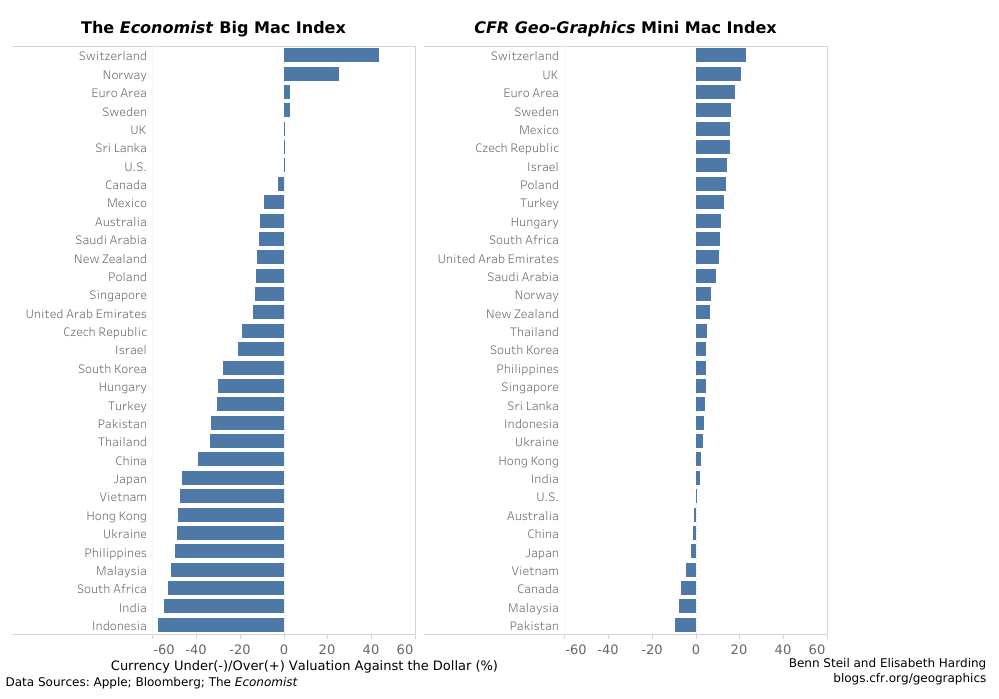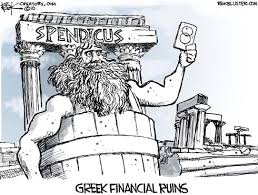by Benn Steil and Elisabeth Harding

The “law of one price” holds that identical goods should trade for the same price in an efficient market. But how well does it actually hold internationally? The Economist magazine’s Big Mac Index uses the price of McDonald’s Big Macs around the world, expressed in a common currency (U.S. dollars), to measure the extent to which various currencies are over- or under-valued. The Big Mac is a global product, identical across borders, which makes it an interesting one for this purpose.
But the law of one price assumes there are no restrictions on, or costs involved in, the movement of goods, and Big Macs travel badly. So in 2013 we created our own Mini Mac Index, which compares the price of iPad minis across countries. Minis are a global product that, unlike Big Macs, can move quickly and cheaply around the world. As explained in the video here, this fact helps equalize prices.
As shown in the graphic at the top, the Mini Mac Index suggests that the law of one price holds far better than does the Big Mac Index. The Big Mac shows the dollar overvalued against most currencies, by an average of 22 percent (a whopper). By contrast, the Mini Mac shows the dollar slightly undervalued—6.6 percent on average (small fries). Still, this is a big movement from August, when we had the dollar overvalued by 3.4 percent.
Overall, what we’ve witnessed is dollar softening based on growing confidence that the Fed will pull off the trickiest of monetary maneuvers—a soft landing. With inflation falling despite a persistently strong labor market and solid growth, the Fed looks set to lead the world into a new easing cycle—possibly as early as March, but more likely in May. Correspondingly, the euro and the pound sterling have shifted from modest undervaluations to overvaluations.
Perhaps the most surprising movement is in the Israeli shekel, which was 5.2 percent overvalued in August and is now, in the midst of Israel’s war with Hamas, 14.2 percent overvalued. The move reflects credibility in the market of the Bank of Israel’s pledge, made on October 9th, two days after the Hamas invasion and slaughter, to sell up to $30 billion in reserves to support the shekel. The world’s most undervalued currency, by our measure, is Pakistan’s rupee. Although its undervaluation has fallen from 12 percent to 9.5 percent, reflecting dollar softening globally, Pakistan’s reserves remain dangerously low and its political foundations wobbly.
Source: https://www.cfr.org/blog/soft-landing-looking-likely-dollar-falls-cfr-mini-mac-index



